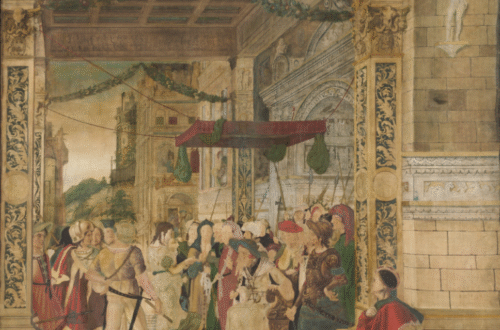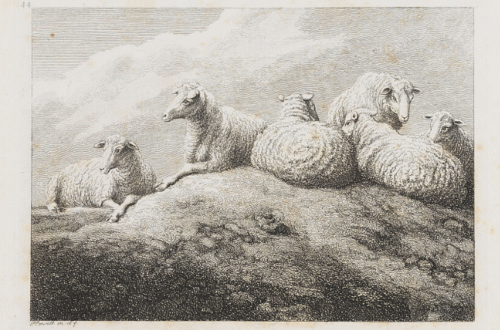Not a day goes by in America where the political parties accuse each other of violating ethics. Some of the most common examples from today are the Republicans accusing Hunter Biden, son of President Joe Biden, of using his father’s position for personal gain when conducting business deals in Ukraine and China. The Republicans frequently accuse Hillary Clinton, former Secretary of State and Democratic presidential nominee, of misusing classified information in her private email server.
Of course, the Democrats aren’t off the hook either. The Democrats have criticized former President Donald Trump for various things ranging from conflicts of interest in business deals to mixing personal financial interests with presidential duties. Additionally, the Democrats have accused the Trump administration for a variety of ethical rules, including conflicts of interest, misuse of resources, and more.
The blame game isn’t just a part of our political government, it’s played in every area of society. From medical professionals denying they prescribed the wrong treatment, a teacher giving out answers for standardized tests, and even in the church, where they deny the responsibility for driving away a family; or even worse, driving someone away from the Kingdom of God.
With Adam vs. Eve or Adam and Eve vs. The Serpent, God held all parties accountable. In Genesis 3:8-9 (NIV), we read:
8 Then the man and his wife heard the sound of the Lord God as he was walking in the garden in the cool of the day, and they hid from the Lord God among the trees of the garden. 9 But the Lord God called to the man, "Where are you?"
This gives us an indication of what God’s judgment is like. If Adam would have said, “Father I have sinned,” or Eve would have said, “Father, I have sinned against you,” we might wonder how God may have responded.
Of course, the Serpent in the story was not going to admit it had sinned. But knowing who the Serpent is (from Revelation 20:2), he has a long history of being incapable of repenting. Still, God held all parties accountable and therefore, Adam and Eve were driven out of the garden (v. 24).
In Genesis 4, we learn that Adam and Eve went on to produce a family. (Genesis 4:1-2, NIV):
Adam made love to his wife Eve, and she became pregnant and gave birth to Cain. She said, "With the help of the Lord, I have brought forth a man." 2 Later she gave birth to his brother Abel.

They may have had high hopes for making a new start in life. Yet, the life they had come to be adjusted to would drastically change. Their sons, Cain and Abel, had grown up. Abel was a shepherd. Cain was a farmer. But something between them happened, we don’t know, and if we were to operate under today’s court system, we would have no evidence to prove that Cain was an abused child, which drove him to murder his brother.
Some might blame God for being too favorable towards Abel. But, it is difficult for us to judge God, because God had an awareness of the intentions of Cain’s heart–something we never have. We never know what lies within a person’s heart. Nevertheless, Cain was filled with a passion to commit murder. So, he schemed against his brother, Abel, luring him out to a field:
8 Cain attacked his brother Abel and killed him.
If they’d lived in the 20th century, the newspapers would have headlined:
“Man Kills His Own Brother In a Violent Attack
Parents Are Baffled at One Son Dead, The Other a Murderer”
It was reported that sometime in the late afternoon, a father, Adam, went out to the fields to look for his sons. To his horror, he discovered his younger son lying out in the field, dead, lying in a pool of blood, and suffering from severe internal injuries. Going back to his local village, he reported the crime and discovered that his other son was in custody being tried for murder:
Genesis 4:9 (NIV) “Then the Lord said to Cain, ‘Where is your brother Abel?’ / ‘I don’t know,’ he replied. ‘Am I my brother’s keeper?”
Unlike his parents, when God confronted Cain, he didn’t cry out to God and say, “Oh Father, please have mercy upon me! I don’t know what came over me.” Instead, it was more of a smug statement, “Am I my brother’s keeper?”
There seems to be no Scriptural evidence at this point as to if Cain was truly sorry for the sins he committed. Again, under our laws, he would probably be given life without parole or possibly placed on death row. And while some may feel our God is unmerciful; God sentenced Cain to be banished from his homeland:
11 Now you are under a curse and driven from the ground, which opened its mouth to receive your brother’s blood from your hand. 12 When you work the ground, it will no longer yield its crops for you. You will be a restless wanderer on the earth.” 13 Cain said to the Lord, “My punishment is more than I can bear. 14 Today you are driving me from the land, and I will be hidden from your presence; I will be a restless wanderer on the earth, and whoever finds me will kill me.” (Genesis 4:11-14, NIV)
Like Adam and Eve were thrown out of their home in the Garden, Cain was driven away from his home. And the lives of his family members remained changed forever. Adam, Eve, Cain, and Abel, were the people of God. God created his people in his own image (Genesis 1:27). Whereas today, we are God’s people. We are his creation. Yet, are we just as dysfunctional?
Maybe some of us have come from dysfunctional families. Those are families who have damaged their own members in some way. And then, once we have been damaged, at what point do we gain the ability to function again?
Some churches are like dysfunctional families. In particular, some have had drastic events that occur that cause a great amount of damage, and the damage continues to build on itself. Or, the problem may be there has been one person, or a small handful of people, who have operated under the spirit of Cain. They begin to develop a fit of jealousy that drives them to sin. Maybe not murder in the physical sense but certainly murder in the spiritual sense. And, then following the murder, they still will not own up that they have done any wrongdoing. They smooth it out and sweep any evidence under the rug.
We might wonder, how does one move on? Adam and Eve were able to move on. They had another child, Seth (Genesis 5:3-8):
3 When Adam had lived 130 years, he had a son in his own likeness, in his own image; and he named him Seth. 4 After Seth was born, Adam lived 800 years and had other sons and daughters. 5 Altogether, Adam lived a total of 930 years, and then he died.
6 When Seth had lived 105 years, he became the father of Enosh. 7 After he became the father of Enosh, Seth lived 807 years and had other sons and daughters. 8 Altogether, Seth lived a total of 912 years, and then he died.
There is always the hope of a new beginning. This hope has certainly kept the church alive and going for the past 2,000 years. If you know anything about church history, you must know that there have been many battles, and many disputes down through the ages. Furthermore, God has worked through and will continue to work through many people who have come from dysfunctional families. Each of us must commit our own life–that we are not going to be dysfunctional. And, that we will allow God’s Spirit to function in us and through us.
Title: A Dysfunctional Family | Sermon: January 5, 1997 / First Christian Church, LaJunta, Colorado





